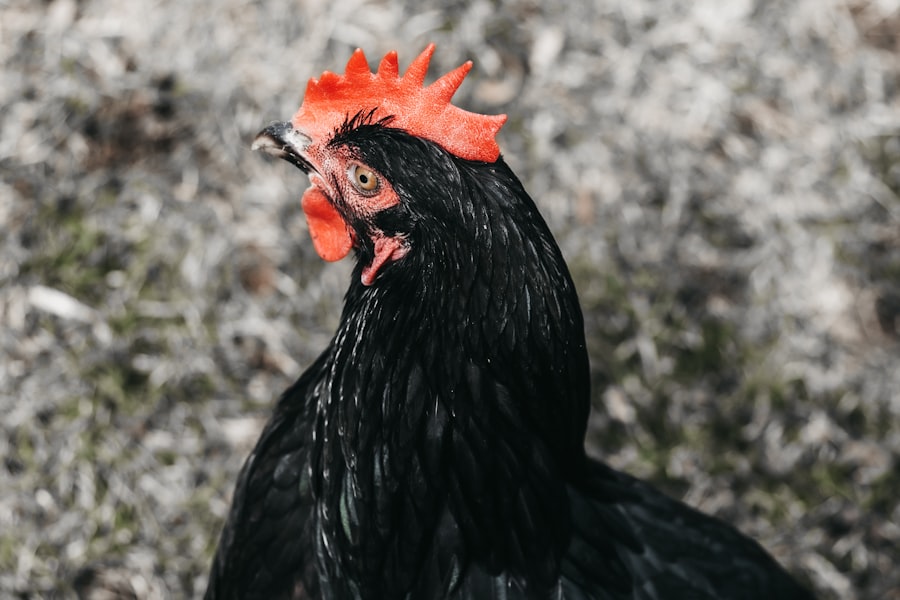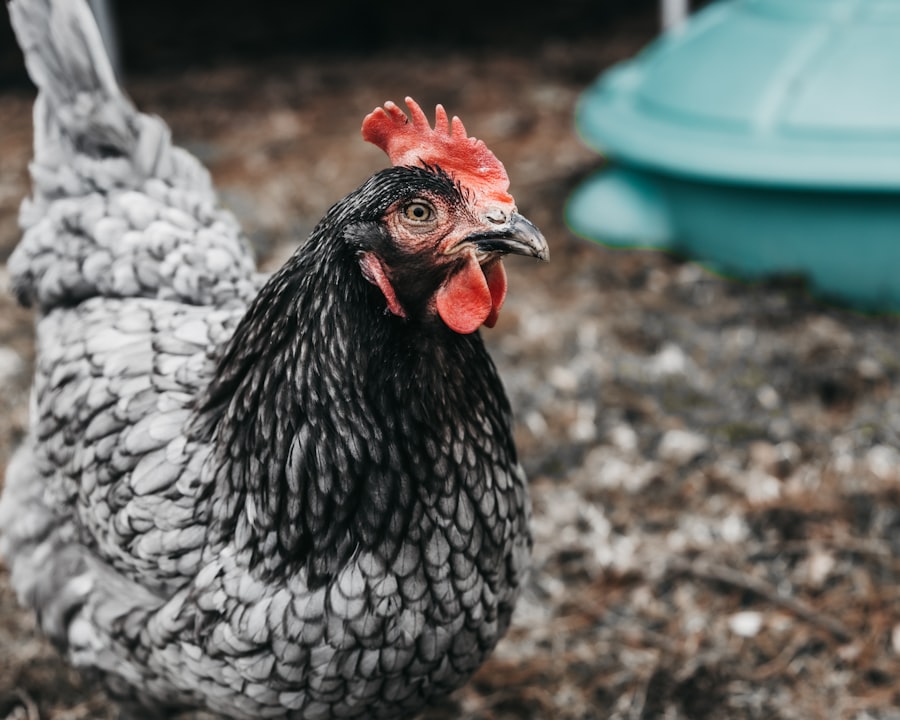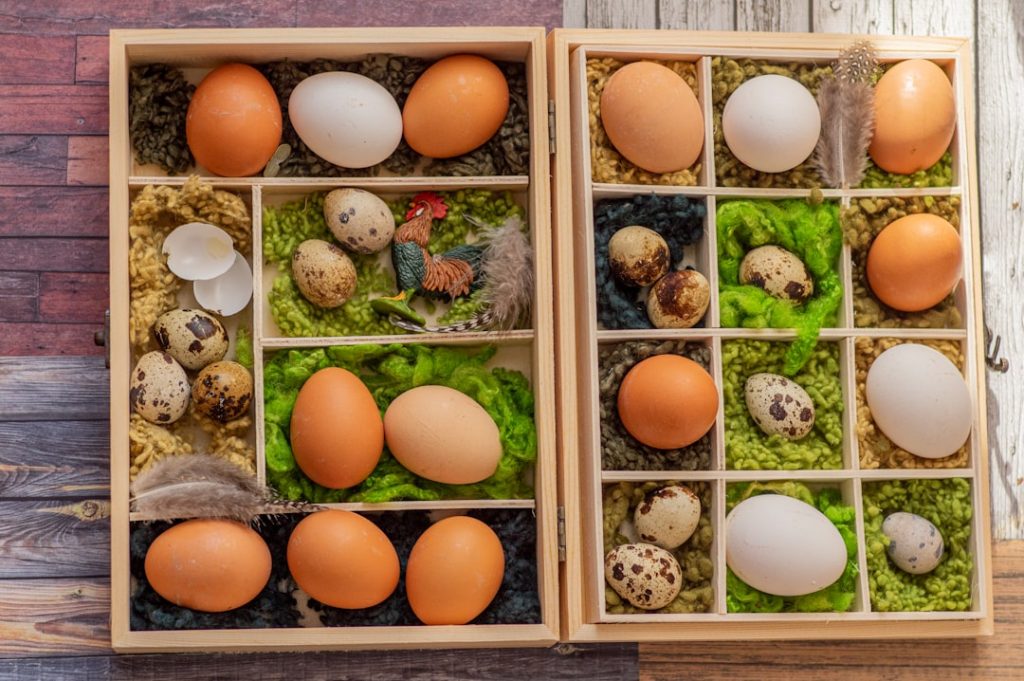When considering the initial costs of raising chickens for egg production, several factors must be taken into account. The primary investment is in suitable housing for the chickens, which can range from a simple DIY coop to a more elaborate pre-fabricated structure. Additional expenses include purchasing the chickens, feeders, waterers, and other essential equipment.
The initial costs can vary significantly depending on the size of the operation. For those with the necessary skills and time, building a coop and sourcing materials can be a more cost-effective option. Purchasing young chicks instead of fully grown hens is another way to reduce initial expenses, as chicks are generally less expensive and will provide eggs for years to come.
The initial costs of raising chickens for egg production can vary depending on specific needs and circumstances. However, with careful planning and consideration, it is possible to start a small-scale operation within a reasonable budget.
Table of Contents
- 1 Maintenance Expenses
- 2 Egg Production
- 3 Quality of Eggs
- 4 Health Benefits
- 5 Environmental Impact
- 6 Overall Cost Comparison
- 7 FAQs
- 7.1 What are the initial costs of keeping chickens?
- 7.2 What are the ongoing costs of keeping chickens?
- 7.3 How many eggs can a chicken produce?
- 7.4 How much do eggs cost to buy?
- 7.5 Are there any additional benefits to keeping chickens beyond eggs?
- 7.6 What are the potential drawbacks of keeping chickens?
Key Takeaways
- Initial Costs:
- Initial costs for setting up a small chicken coop can range from 0 to 0, depending on the size and materials used.
- Additional costs for purchasing chicks, feeders, waterers, and bedding should also be considered.
- Maintenance Expenses:
- Monthly maintenance expenses for a small chicken coop can range from to , including feed, bedding, and occasional veterinary care.
- Costs may increase if additional equipment or upgrades are needed.
- Egg Production:
- On average, a healthy hen can lay 250-300 eggs per year, with peak production occurring in the first 2 years of life.
- Factors such as breed, diet, and environment can impact egg production.
- Quality of Eggs:
- Freshly laid eggs from backyard chickens are often considered to be of higher quality, with thicker shells and richer yolks compared to store-bought eggs.
- The taste and nutritional value of eggs can also be influenced by the hen’s diet and living conditions.
- Health Benefits:
- Consuming eggs from backyard chickens can provide a source of high-quality protein, essential vitamins, and minerals.
- Some people believe that consuming eggs from free-range chickens may offer additional health benefits due to lower levels of stress and exposure to natural sunlight.
- Environmental Impact:
- Raising backyard chickens can reduce food waste by allowing the chickens to consume kitchen scraps and garden leftovers.
- Chicken manure can be used as a natural fertilizer, reducing the need for chemical-based products.
- Overall Cost Comparison:
- While there are initial and maintenance costs associated with raising backyard chickens, the overall cost of producing eggs at home is often lower than purchasing eggs from the store.
- Factors such as egg production, egg quality, health benefits, and environmental impact should be considered when comparing costs.
Maintenance Expenses
Feed Costs
One of the most significant ongoing costs is feed. Chickens require a balanced diet to lay high-quality eggs, so investing in a good quality feed is essential.
Coop Maintenance
Additionally, you will need to regularly clean and maintain the coop to ensure the health and well-being of your chickens. This may involve purchasing bedding materials, cleaning supplies, and other necessary items.
Minimizing Maintenance Expenses
However, there are ways to minimize maintenance expenses by adopting sustainable practices. For example, you can compost chicken manure to create nutrient-rich fertilizer for your garden, reducing the need to purchase commercial fertilizers. You can also consider free-ranging your chickens, allowing them to forage for insects and plants, which can reduce their reliance on commercial feed. By implementing these strategies, you can lower your maintenance expenses while promoting a more sustainable and eco-friendly approach to egg production.
Egg Production

When it comes to egg production, chickens are incredibly efficient. On average, a healthy hen will lay an egg every 24-26 hours, resulting in a steady supply of fresh eggs for your household. The number of eggs produced can vary depending on the breed of chicken, their age, and environmental factors, but in general, you can expect a reliable supply of eggs from a small flock of hens.
Furthermore, if you are looking to scale up your egg production, you can consider adding more hens to your flock or implementing breeding programs to ensure a consistent supply of eggs. With proper care and management, chickens can be a reliable source of high-quality eggs for your family or even for sale to local markets or neighbors.
Quality of Eggs
The quality of eggs produced by backyard chickens is often superior to those found in commercial grocery stores. This is due to several factors, including the chickens’ diet, living conditions, and overall health. When chickens have access to a varied diet that includes insects, plants, and grains, their eggs will have richer yolks and more robust flavors compared to eggs from factory-farmed hens.
Additionally, backyard eggs are often fresher since they do not need to travel long distances to reach consumers. Moreover, backyard eggs are typically produced by hens that are raised in more humane conditions, which can result in healthier and happier chickens. This can lead to lower levels of stress hormones in the hens, resulting in eggs that are not only tastier but also potentially healthier for consumers.
Health Benefits
In addition to the superior taste and quality of backyard eggs, there are also numerous health benefits associated with consuming them. Backyard eggs are often higher in essential nutrients such as omega-3 fatty acids, vitamin D, and antioxidants compared to commercially produced eggs. This is largely due to the fact that backyard chickens have access to a more diverse diet that includes insects, plants, and other natural sources of nutrition.
Furthermore, consuming eggs from backyard chickens can also reduce the risk of exposure to harmful chemicals and antibiotics that are commonly used in commercial egg production. By knowing exactly how your chickens are raised and cared for, you can have greater confidence in the safety and quality of the eggs you consume.
Environmental Impact

Reducing Waste and Fertilizer Use
For example, chickens can help reduce food waste by consuming kitchen scraps and leftovers that would otherwise end up in landfills. Additionally, their manure can be composted and used as fertilizer for gardens and crops, reducing the need for synthetic fertilizers.
Pest Control and Holistic Farming
Furthermore, free-ranging chickens can help control pests such as slugs and insects in the garden, reducing the need for chemical pesticides.
A Sustainable Approach to Food Production
By integrating chickens into a holistic farming system, you can create a more sustainable and regenerative approach to food production that benefits both the environment and your household.
Overall Cost Comparison
When comparing the overall cost of raising chickens for egg production with purchasing eggs from the grocery store, there are several factors to consider. While there are initial costs associated with setting up a chicken coop and acquiring a flock of hens, these expenses can be offset over time by the consistent supply of fresh eggs produced by your chickens. Additionally, by implementing sustainable practices such as composting and free-ranging, you can further reduce ongoing maintenance expenses.
Moreover, when considering the health benefits and superior quality of backyard eggs compared to commercially produced eggs, the overall cost comparison becomes even more favorable. By investing in raising chickens for egg production, you not only have access to a sustainable source of high-quality eggs but also contribute to a more environmentally friendly and ethical approach to food production. Ultimately, while there may be some initial costs involved in raising chickens for egg production, the long-term benefits far outweigh the investment.
If you’re considering keeping chickens to save money on eggs, you may want to check out this article on turning a shed into a chicken coop. It offers valuable tips and advice on how to repurpose existing structures to create a comfortable and cost-effective home for your feathered friends. Check it out here.
FAQs
What are the initial costs of keeping chickens?
The initial costs of keeping chickens include purchasing a coop, feeders, waterers, and other necessary equipment. Additionally, there may be costs associated with acquiring the chickens themselves.
What are the ongoing costs of keeping chickens?
Ongoing costs of keeping chickens include purchasing feed, bedding, and any necessary medical care for the chickens. There may also be costs associated with maintaining the coop and other equipment.
How many eggs can a chicken produce?
On average, a chicken can produce around 250-300 eggs per year, depending on the breed and individual factors.
How much do eggs cost to buy?
The cost of eggs can vary depending on location and quality, but on average, a dozen eggs can cost around $2 to $4.
Are there any additional benefits to keeping chickens beyond eggs?
Yes, keeping chickens can provide additional benefits such as natural pest control, fertilizer for gardens, and the enjoyment of having pets with unique personalities.
What are the potential drawbacks of keeping chickens?
Potential drawbacks of keeping chickens include the time and effort required for care and maintenance, as well as the potential for noise and odor. Additionally, there may be local regulations or restrictions on keeping chickens.
Meet Walter, the feathered-friend fanatic of Florida! Nestled in the sunshine state, Walter struts through life with his feathered companions, clucking his way to happiness. With a coop that’s fancier than a five-star hotel, he’s the Don Juan of the chicken world. When he’s not teaching his hens to do the cha-cha, you’ll find him in a heated debate with his prized rooster, Sir Clucks-a-Lot. Walter’s poultry passion is no yolk; he’s the sunny-side-up guy you never knew you needed in your flock of friends!







